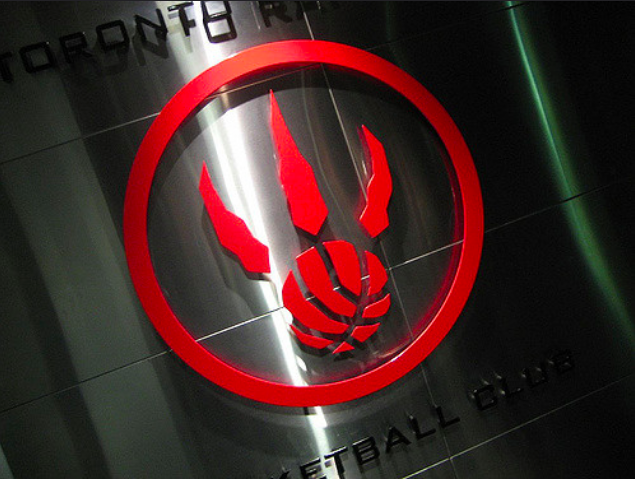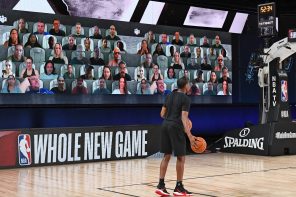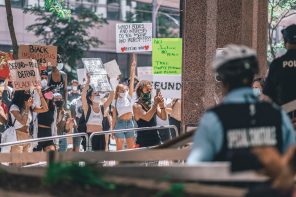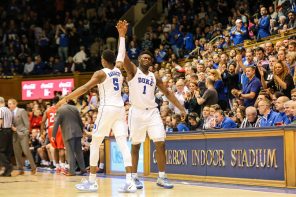When you think of the Toronto Raptors’ recent stretch, head coach Dwane Casey is sure to come to mind. During Casey’s seven-year tenure as head coach of the Toronto Raptors, he truly made his mark in the organization, setting nearly every record, instilling his defensive values within his players, and bringing a 1,300 pound boulder into the team’s locker room. He ended a five year playoff drought and started a streak of five consecutive playoff appearances, all despite the loss of superstar Chris Bosh. In just three seasons, Casey was able to double the team’s win total from the season prior to his hiring, while simultaneously setting the team’s new record for the most wins in a season. He would go on to beat that record the following season, and again a year later, and once more this season. Casey led his team to four playoff series wins, including their first best-of-seven win and their first Eastern Conference Finals. Despite these accolades and achievements, Casey has been relieved of his duties as head coach of the Toronto Raptors. This came just days after being voted Coach of the Year by his peers in the National Basketball Coaches Association, and while it isn’t a complete surprise, Casey’s firing is undeserved. He shortened what would have otherwise been a lengthy rebuilding process, and helped start the Northern Uprising. Seeing all of Casey’s positive impact on the organization brings to question: what reason would the Raptors have for letting him go?
When Casey was given the keys, the team was led by a 21 year-old DeMar DeRozan, who could hardly shoot the ball straight. A year later, the team traded for Kyle Lowry, who had the reputation of being uncoachable. With Casey’s help, both were able to grow into the four-time all-stars they are today. It’s clear that Casey has a knack for player development, but is it possible that Casey became the victim of his own success? A big reason for the team’s first-place finish and 59-win season was their bench, almost exclusively made up of players called up from the NBA’s development league. Because the team would be depending on such young and inexperienced players, only one of whom was a top-20 draft selection, they were predicted to win just 43 games this past season. When they shattered that prediction with the team’s greatest regular season of all time, playoff expectations grew for a team that may have not been equipped to carry such a level of play into the postseason. The Raptors ‘Bench Mob’ fell flat in the playoffs, and despite winning the series, they were simply not themselves in the first round of the playoffs. Keep in mind for most of their reserves, this was their first taste of real postseason playing time, and any basketball fan will tell you that the playoffs are a different beast. With the bench underperforming and a disappointing second round performance from DeRozan, all eyes turned to Dwane Casey. Every move he made was subject to endless criticism because the team was now supposed to do better.
He exceeded expectations, rebuilt a team without retooling it, and set them up for postseason success.
That is not to say that Casey is a flawless coach – almost every Raptors playoff appearance over the past 5 years has led to fans calling for him to be fired. He’s consistently been criticized for having an isolation-focused style of play, depending too much on his two stars, and being reluctant to make lineup changes when necessary. Each of these complaints was essentially inapplicable to his refined system; the team jumped from 30th in assists per game to 6th, the Raptors’ high-usage star Kyle Lowry played 5 fewer minutes per game, and Casey shuffled his starting lineup several times in the playoffs. Casey was on the hotseat last summer after flaming out to the Cavaliers in another sweep, and team president Masai Ujiri tasked him with creating a culture change. Casey returned with the same players, and created a pass-first system which saw the players shift their focus to the future of the NBA – three point shooting. He exceeded expectations, rebuilt a team without retooling it, and set them up for postseason success. When the players ultimately shrank before LeBron James, though, Casey became the scapegoat.
While his firing was undeserved, it is not surprising. Following postseason disappointment, it is quite common for teams to hold their coach accountable instead of their stars (à la Scott Brooks and Monty Williams). This is partly because it isn’t the coach who fills up the arena, and partly due to the difficulty in trading stars for players with a similar value. Although it is a disappointing moment in Raptors history, a lot can be learned and carried over from the Dwane Casey era to the team’s next chapter. Both Casey and Ujiri emphasized continuity throughout this stretch – they focused on internal player development rather than adding new high-level talent. Similarly, they should look within the organization for coaching candidates. As much as Casey was the defensive engine of the team, assistant coach Nick Nurse was responsible for perfecting the team’s new offence. Another candidate could be Jerry Stackhouse, who was an assistant coach for the ball club before being promoted to head coach of the team’s development league affiliate, Raptors 905, where he would help start the careers of Fred VanVleet and the rest of the team’s young reserves. Regardless of who is ultimately selected to fill the vacancy, the team should be grateful for Casey’s part in their tremendous growth and should hold on to all of the values he’s put into the organization and players. With or without the boulder in their locker room, the Raptors should continue to pound the rock in his honour.








